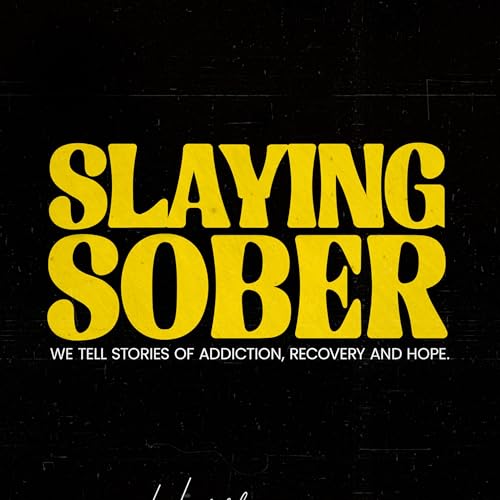
S2 E4 - Jess Kennedy - ADHD & Addiction
Échec de l'ajout au panier.
Échec de l'ajout à la liste d'envies.
Échec de la suppression de la liste d’envies.
Échec du suivi du balado
Ne plus suivre le balado a échoué
-
Narrateur(s):
-
Auteur(s):
À propos de cet audio
- - Jess Kennedy shares her journey with addiction and recovery.
- Her first experience with alcohol was at age 12, linked to trauma.
- Growing up with ADHD, Jess felt out of place in her environment.
- She became a high functioning addict, masking her struggles.
- The stigma of addiction often overlooks high functioning individuals.
- Jess's overdose at work was a pivotal moment in her life.
- Detoxing during COVID-19 presented unique challenges.
- Reaching out for help was a crucial step in her recovery.
- Jess was diagnosed with bipolar disorder and PTSD during her recovery.
- She emphasizes the importance of understanding mental health in addiction. Navigating psychotic episodes can lead to profound realizations about one's mental health.
- Receiving a diagnosis can be a relief, shifting the perception from being an addict to being someone in need of help.
- Medication can stabilize bipolar disorder, but finding the right one can take time.
- Complex PTSD can stem from various traumas, including addiction and societal pressures.
- Building a supportive network is crucial for recovery, even if it means losing some friends along the way.
- Setting boundaries is essential for maintaining recovery and mental health.
- Celebrating milestones in recovery can reinforce positive changes and connections.
- Relationships can change significantly during recovery, revealing true friends and support.
- Advocacy for mental health awareness is vital to reduce stigma and promote understanding.
- Language matters; terms like 'neuro-spicy' can undermine the seriousness of ADHD and other conditions.
- There is a significant correlation between ADHD and addiction, highlighting the need for proper diagnosis and treatment.
- Access to ADHD diagnosis and treatment is crucial for preventing addiction and improving lives.
- Children with ADHD face unique challenges that require understanding and support from parents and educators.
- Finding purpose in advocacy can help others navigate their mental health journeys.
In this conversation, Jess Kennedy shares her profound journey through addiction, beginning with her early experiences with alcohol at the age of 12, linked to trauma.
She discusses her struggles with ADHD, feeling out of place, and how she became a high functioning addict, masking her issues while maintaining a successful career.
Jess recounts a pivotal moment when she overdosed at work, leading to a turning point in her life.
Throughout her recovery, she faced the challenges of detoxing during the COVID-19 pandemic and the stigma surrounding addiction.
Jess emphasizes the importance of understanding mental health, as she was later diagnosed with bipolar disorder and PTSD, which stemmed from her experiences.
Her story is one of resilience, highlighting the complexities of addiction and the journey towards healing.
In this conversation, Jess Kennedy shares her journey through mental health challenges, including bipolar disorder, ADHD, and complex PTSD.
She discusses the importance of receiving a proper diagnosis, the role of medication in managing her conditions, and the significance of building a supportive network during recovery.
Jess emphasizes the need for advocacy in mental health awareness, the impact of language on perceptions of mental health, and the correlation between ADHD and addiction.
Through her experiences, she highlights the importance of setting boundaries, celebrating milestones, and finding purpose in helping others navigate their mental health journeys.


